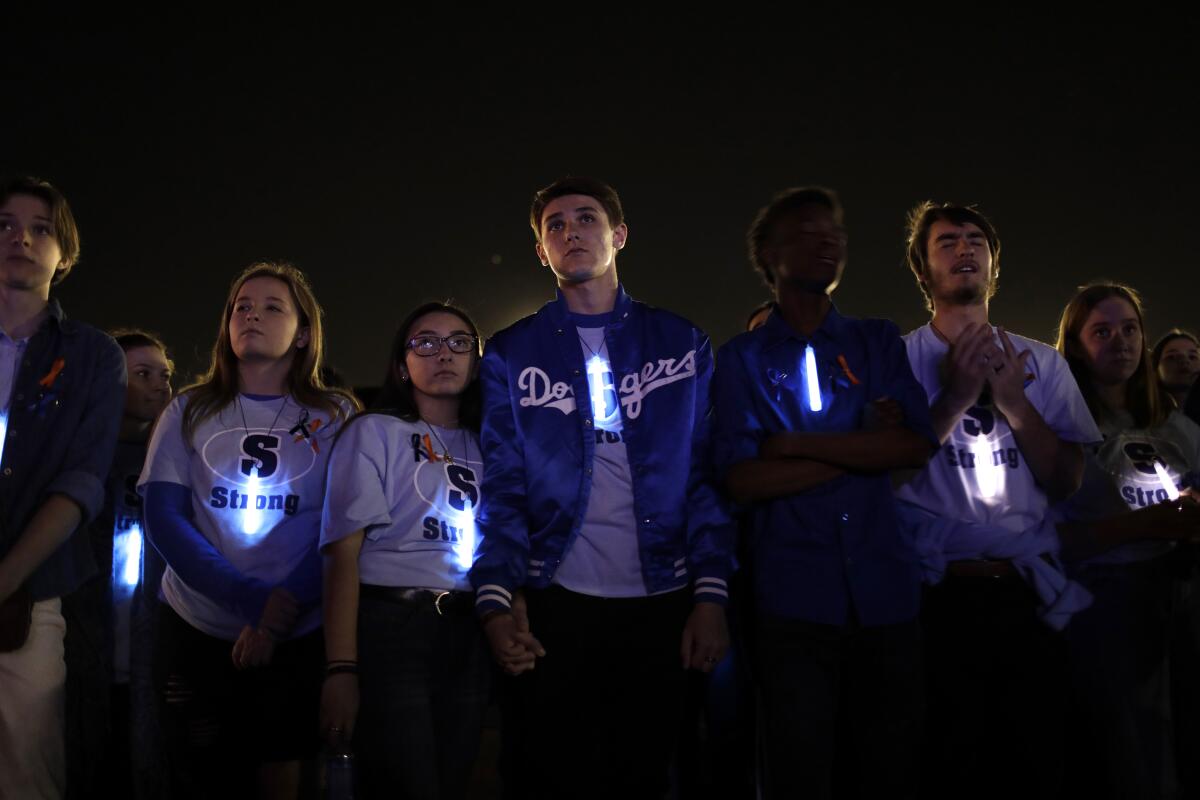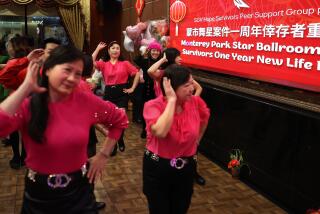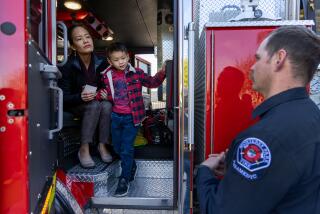In Santa Clarita, grace, not anger, fuels the healing process

- Share via
The massive vigil at Santa Clarita’s Central Park on Sunday night had the fervor of a church revival and the trappings of a pep rally. There were tears and cheers, prayers to heal the community and promises to never forget.
In the five days since two Saugus High students were shot to death and three wounded by a gun-wielding schoolmate, Santa Clarita’s schools may have been closed but its churches were open and busy.
Churches, cathedrals and synagogues became impromptu gathering spots for heartsick residents. They offered more than spiritual guidance; they ministered to practical needs.
The church was where frightened young witnesses waited after the shooting until police officers could interview them; where mental health counselors were available within hours of the tragedy; where a trauma expert met with hundreds of grieving families to answer two central questions:
How do you return to normal? What do we do with so much pain?
“The mood was very heavy, very shocked,” said psychologist Elizabeth Ramquist, the trauma specialist. Trauma “shifts the way we see ourselves and the world.”
Just as off-duty police officers whose children attend Saugus High were the first to arrive and tend the wounded victims, churches such as Grace Baptist and Real Life Church became first responders for the soul.
I was struck, watching coverage of the shooting’s aftermath last week, by how many Saugus students referenced “God” and “prayer” in their interviews. It didn’t come off like a “thoughts and prayers” cliché; more like a spontaneous expression of confidence in God.
Over the next few days, faith-based values fueled a wave of good works in the community.
Charity was embodied by the daily “meal trains” arranged by neighbors of families whose children were shot. So many people volunteered, families won’t have to worry about meals for months.
Generosity was reflected in the flood of donations in the collection box — which Grace Baptist will share with the mother of the boy who shot the students, then killed himself. “His mom is certainly a victim in this,” pastor David Hegg told my colleague Harriet Ryan. “She’s lost a son.”
That’s what happens when grace, not anger, is your fuel.
I felt that at the vigil in a way I never expected, when a stranger sidled over to me, wrapped her arm around my shoulders and pulled me close. I must have looked forlorn, standing there alone, wiping tears from my cheeks as I was taking notes.
Donna Hansel held my hand as we swayed to praise music from the Christian band onstage. She made me feel like part of the community. Her family has lived in Santa Clarita for 17 years. Her husband, Mike, is a minister. Her daughter went to Saugus High.
“A lot of the children here have grown up in the church,” she told me, surveying a field that held thousands of teenagers. “Grace Baptist has been ministering to some of these high school kids since they were very small.”
That’s prepared them to weather this tragedy, she said. “We know that safety is not a place. It is not a person. God is greater than all our situations.”
There’s a downside to such fervor, I suppose, if churchgoers close in on themselves and leave those outside their circle to fend for themselves. But even nonbelievers I spoke to were lifted by the spirit of the evening.
“I’m spiritual, just not religious,” one man said, his blue glow stick dangling from a jacket that said “Saugus Strong.” His comfort had come not from church but from the uncommonly beautiful sunsets Santa Clarita experienced last week.
It was a reminder from the universe, he said, that joy exists even in the midst of crushing pain.
The vigil was devoted to remembering the students who died: Gracie Anne Muehlberger and Dominic Blackwell. It was clear the entire community felt victimized; blindsided by a boy who seemed to show no signs of distress before he emptied his gun on the quad.
It struck at the core of Santa Clarita’s identity as one of America’s safest cities. “This is a little more personal than if [the shooter] was an outsider,” psychologist Ramquist said. It dented the city’s collective sense of safety and control, and may lead to a loss of intimacy “if you question whether you can trust those close to you.”
The round of memorials in Santa Clarita might just be an antidote to that. There’s a reason for our reliance on the age-old custom of communal grieving; we draw comfort from others when we share our pain.
In fact, “social support is the best way to mitigate grief,” Ramquist said.
“Post-trauma, you want to help people calm their minds, calm their bodies down,” she explained. “Most faiths have some sort of centering practice — knowing where you are in light of the world, the cosmos, whatever deity. That can be very therapeutic.”
But the greatest value of organized religion as a balm for grief may rest in its durability.
“Religion is an anchor,” Ramquist said. “It’s fundamental, unchanging. Across most faith traditions, it’s been passed down through generations. And that can be very helpful, in light of all that shifted last Thursday morning.”
I thought about that on Sunday night, as I stood with hundreds of strangers at a makeshift memorial on a concourse at the park. There were dozens of candles, blue and white balloons and bouquets. And two white crosses decorated with hearts.
I’d never met Gracie Anne or Dominic. But I felt better for having come to pray and say goodbye.
More to Read
Sign up for Essential California
The most important California stories and recommendations in your inbox every morning.
You may occasionally receive promotional content from the Los Angeles Times.














